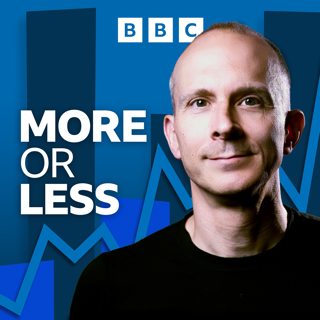
Kidney donation: the chance of finding a match
The chance of a successful kidney match between two unrelated people has increased significantly in the past ten years - why? Tim Harford speaks to Professor Anthony Warrens, president of the British Transplantation Society. Donations to the Manchester Dogs' Home have exceeded £1m in the wake of a fire, which killed more than 50 dogs. The large sum raised caused Today presenter Justin Webb to comment that it often seems easier to raise money for animals than humans who are in need. Is it true that we give more generously to animals? Ben Carter reports. An edition of BBC Four's Wonder of Animals states that there are 14,000 ants to every person on earth, and that were we to weigh all of these ants they would weigh the same as all the people. Can this be true? And a complaint has been held up against a BBC programme for calling Eritrea 'tiny'. Can any country rightly be described this way?
19 Sep 201428min

Shakespeare vs Rappers
It's a 'fact' beloved of English teachers around the world: that Shakespeare, the greatest playwright in English, also had the greatest vocabulary. But research published earlier this year suggests English teachers might have to look elsewhere to establish the superiority of the Bard - apparently his vocabulary lags behind the best and most famous rappers of the last decades. Is this comparison fair, and if so, does it diminish the Bard's lustre? This programme was first broadcast on the BBC World Service.
15 Sep 20149min

Scottish referendum polls
Tim Harford talks to pollsters about how they are trying to gauge the political mood in Scotland, and he analyses Nigel Farage's claim that more than half of Scotland is on benefits. Plus: celebrating Countdown, the longest-running TV quiz show; quantifying malnutrition in the UK; and does the ‘Curse of Strictly Come Dancing’ really exist?
12 Sep 201428min

WS MoreOrLess: To ice or not to ice?
The ALS ice bucket challenge has become a viral phenomenon. People around the world have been dousing themselves in ice-cold water and in the process have raised over $100m for charity. But a true nerd doesn't run with the herd, and Tim Harford is only going to do the challenge if the facts stack up. He investigates whether a viral challenge like this is good for charitable giving overall, and whether there are reasons to be more choosy about the charities we give to. This programme was first broadcast on the BBC World Service.
8 Sep 20149min

To ice or not to ice?
The ALS ice bucket challenge viral phenomenon has raised over $100m. Is this good for charitable giving overall, and should we be more choosy about the charities we give to? Plus: is there a 'rising tide' of anti-Semitism in Europe; does Shakespeare have the largest vocabulary, or is the Bard bested by hip hop’s finest; and is the current generation of young people likely to live shorter lives than their parents?
5 Sep 201428min

WS MoreOrLess: Do We Use Only 10% of Our Brains?
Is it true that humans use just 10% of their brains? It’s the premise of the new film Lucy, in which the brain capacity of Scarlett Johansson’s character increases to dangerous levels. Tim Harford uses considerably more than 10% of his brain to separate the neuro-science facts from the fiction with Professor Sophie Scott. What drives the price of footballers? Tim Harford tries to understand the huge transfer fees with Raffaele Poli from the CIES Football Observatory and football agent Seb Ewen. Presenter: Tim Harford Producer: Ruth Alexander This programme was first broadcast on the BBC World Service.
1 Sep 20149min

How Deadly Is Ebola?
Media reports are suggesting that as many as 12,000 people may have Ebola in West Africa, but experts tell More or Less that's not the case. It's also said that Ebola kills up to 90% of victims, but while that's true of one outbreak, the death rate in other Ebola outbreaks has varied widely. Tim Harford and Ruth Alexander
29 Aug 201428min

WS MoreOrLess: Deaths in Gaza
As the Gaza conflict continues, the fact that there are estimated to be nearly three times as many men as women among the Palestinian civilian casualties has been an issue in the spotlight. Tim Harford and Ruth Alexander look at why men are often over-represented in civilian death tolls, and how the statistics in this conflict are being gathered. This programme was first broadcast on the BBC World Service.
25 Aug 20149min





















